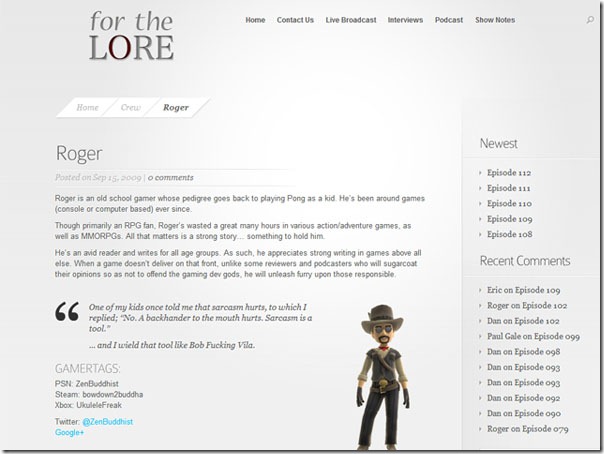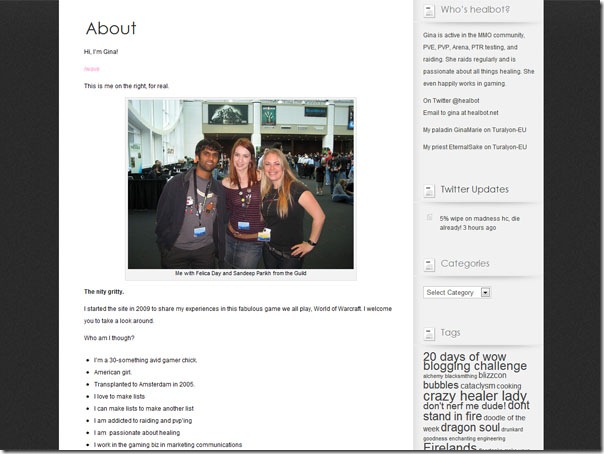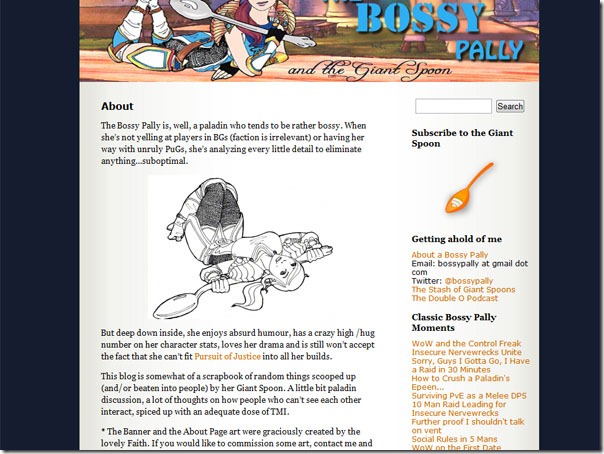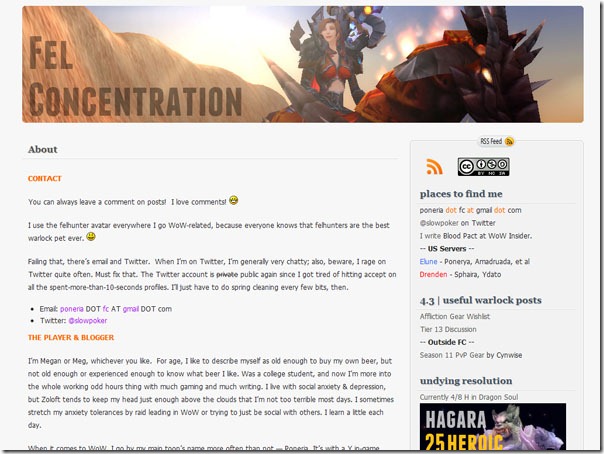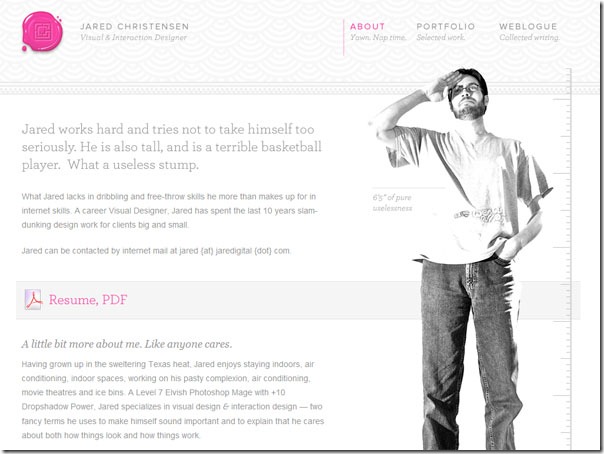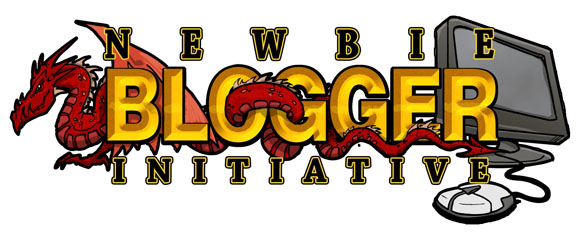You’ve figured out why you should blog.
You worked hard on naming conventions for your blog.
You learned the nuances when writing for the internet.
You’ve mastered Writer’s block.
And you learned to… just get off your ass and write.
But despite applying all the technical and promotional techniques that you learned, you’re still not quite getting the comments you’re looking for. The traffic isn’t reflecting the effort and work you’re putting in. No facebook likes, Google +1’s, and no retweets. In fact, you’re gradually contemplating throwing in the towel.
What gives?
It’s because you’re missing a crucial element. A few weeks ago, I signed up for a Webinar from John Morrow, associated editor from Copyblogger.com. It was a free, 2 hour session discussing elements of traffic and community building. I figured I’d share the notes I took.
What we’re taught
Content: Write awesome content. The logic is if you keep writing amazing and helpful stuff, you’ll get noticed and your viewership will start skyrocketing.
Promotion: At the same time, you need to promote your posts. Ask for links, retweets, shares, etc. If people don’t know you exist, they’re not going to read your or share your stuff. So you have to do what you can to get known.
You get jillions of readers if you can combine them effectively.
The equation
Content + Promotion = Readers
But, this equation is missing something.
It’s off slightly. Content and promotion are both important, but there’s a missing component of the formula. You can still write smashing hits and you can still get those mentions, but it might only work for the short term and it doesn’t help your overall strategy of your blog.
It’s about the Connections
This is what the actual equation is.
Content + Promotion + Connections = Readers in the bajillions
Jon used best selling authors as an example.
The easiest way to write a best seller is to already be a best selling author. Guys like Seth Godin and Stephen King don’t need to ask for agents, or be booked to TV shows. People just already know who they are. The reasons why new authors struggle is no one knows who you are. You have to fight to get an agent, a publisher, an interview and so forth. This works the same way for bloggers.
“If you deleted my blog and all my subscribers (I’d be sad for one), but it’s not the end of the world. Because over the past few years, I’ve built relationships with all the popular bloggers in the world. I could still do in a flash.”
-John
The real key to blogging isn’t who you know. The key to blogging is who knows you. No matter how good your content, or how awesome it is or how hard you work, it’s not going to matter.
If you don’t have any influential connections, it’s not going to matter.
Popular bloggers ignore you because they don’t know you. If you email a blogger asking for a link to your site, you’ll most likely be ignored.
If you think about it, we do the same thing.
You scan through your emails and look for the senders you recognize. Anyone you don’t know, you end up ignoring or skipping over. Popular bloggers get on average 100+ emails (some go to 500+) per day. The reality is, most bloggers don’t often respond via email (at least, not right away). We respond to people we know. You have to get lucky with them opening your email to help you out. That’s not a situation you really want to be in which is why why link building won’t work.
If they don’t know who you are, it’s impossible. They have to know you first in order to get you links.
Let’s talk about twitter
What’s supposed to happen is you share your link with your friends. They share it with their friends and then it goes viral and snowballs it.
Wrong. That’s not actually how it works.
The posts don’t start with people with few friends. It’s not actually consistent. It’s like winning the lottery online. The way viral posts usually happen is they go top down. They get other people with big followings on twitter to share it with their followers and to their friends on twitter. And then their followers. It starts with the top people and works down.
The 3 C’s
Your goal must be done in these 3 steps in this order.
Step 1 — Connections with list owners
Connections means that those bloggers know your name. They’ve read your work. They’ve had a conversation with you. They think you’re smart and they like you.
No, this doesn’t mean a connection on LinkedIn.
Now list owners means people who have a huge twitter following, high RSS counts, a large emailing list, etc. They’re all different types of lists. You need to get THOSE people to like you because they can help spread your content to their followers and readers.
Step 2 — Content creation
Create awesome content targeted specifically at their audience, point out how it’s relevant to their audience, and ask them to promote it. You can’t just write great content and “hope” someone stumbles upon it. You need to have a connection in mind.
Step 3 — Convert visitors
Ideally, you’d be able to offer your readers something of value. Blogs in other niches hook up readers with like an EBook, a report, or something but unless you’re really intense about it, I wouldn’t stress about that.
When it comes to subscriptions, Jon advises that email is way better than RSS. The engagement level and retention of email over RSS is about 20 times more valuable.
But, you should offer both types anyway. Make sure they’re full feeds.
This is the wrong order
- Content
- Connections
- Convert
Instead, the actual order should be:
- Connections
- Content
- Convert
The problem is you start as nobody. How do you become a somebody?
The answer to this is guest blogging!
Jon discovered that this is the only strategy that consistently works for every topic, every blogger, every niche. Some strategies work for certain topics and bloggers, but guest blogging is good for everything. If you guest on a big blog, and you write a mindblowingly amazing post, readers are going to say that post is awesome and they want to read more.
Here’s another analogy he used.
Think of it like an opening act for a major concert.
You’re performing on stage for someone like The Rolling Stones and you’re the first act.
The act of writing a guest post for a popular blog, those bloggers will love you. These posts get you introduced to other popular bloggers and influencers as well. This does NOT mean commenting. This means an actual article to give away to big popular blogs. We’re talking like 1500+ words. You write a popular post for one of these blogs and they edit it for you and give you feedback.
As an aside, if you ever get a chance, take your original version and put it side by side by the edited version. Ask yourself what changed and why.
The smartest thing you can do is link directly to your page (If possible, link directly to a page that offers something cool, like a webinar, or a report, etc).
Make connections
I want to re-emphasize one more thing.
Network the hell out of everything.
Make friends.
Get contacts.
Know people.
Connect.
It is the universal skill of all universal skills. So many opportunities will be available to you. This is one of the lessons my dad instilled in me when I was younger (actually, this was second after knowing my 12 x 12 multiplication tables). While you’re never going to be best friends with everyone you meet, it doesn’t hurt to be on relatively good terms with everyone.
This isn’t even about blogging. Things like academic openings or even job postings? Amazes me how much of that stuff is behind closed doors. Who you know can make a way bigger impact on your life than what you know. You never know when a blogger’s brother’s wife is looking to hire someone for a specific position that happens to coincide with your goals.
You never know what doors will open from that one blogger who takes you under their wing, or from that one guy who retweets your post.
On the other hand, if there’s nothing wrong with burning bridges as long as it’s done for the right reasons. Alas, that’s beyond the scope of this post.
“More business decisions occur over lunch and dinner than at any other time, yet no MBA courses are given on the subject.”
– Peter Drucker




